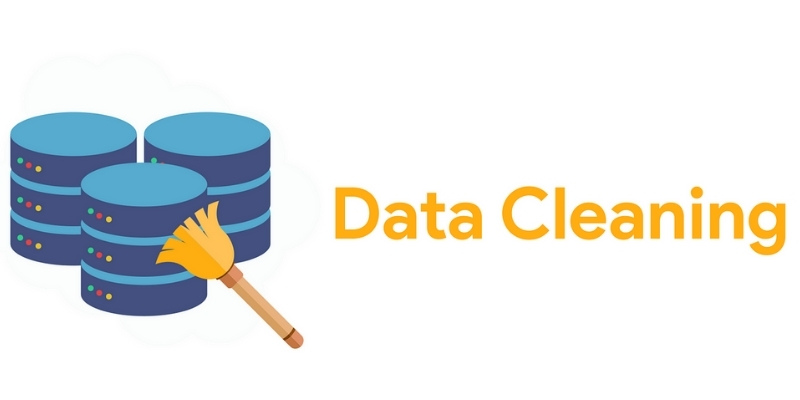Everyone in the finance field is being affected by artificial intelligence (AI). Artificial intelligence (AI) used to be seen as a tool for big tech companies or futuristic uses, but now it's used in everyday financial jobs. From handling bills to spotting market trends, it's changing the way financial work is done and making things faster, more accurate, and more efficient.
This transformation is not limited to one or two areas. Whether it’s accounting, risk management, taxation, customer service, or investment planning—AI is quietly becoming an essential part of every finance discipline.
AI in Financial Accounting and Bookkeeping
AI technologies are rapidly becoming standard tools in accounting departments. These tools can process large volumes of financial data and automate many routine tasks, reducing the chance of human error.
Examples of AI in accounting include:
- Automating the entry of receipts and invoices
- Matching bank transactions with internal records
- Flagging duplicate or suspicious entries
- Generating real-time financial reports
By handling repetitive work, AI allows finance professionals to focus on decision-making, compliance, and strategic planning.
AI in Financial Planning and Analysis (FP&A)

AI is now being used by Financial Planning and Analysis (FP&A) teams to make planning, forecasting, and performance analysis better. AI tools use accurate past financial data and up-to-date market data to make accurate, changing predictions. These tools let you quickly run different scenarios, which helps businesses plan for both the best and worst possible outcomes.
With AI tools, companies can:
- Predict future revenue and expenses
- Identify potential cost-saving areas
- Adjust budgets based on live data
- Model the financial impact of strategic decisions
Risk Management Powered by AI
Managing financial risk is one of the most critical functions in any organization. AI helps teams detect potential risks earlier and respond more effectively. Its ability to process thousands of transactions and data points instantly allows it to spot unusual patterns that a human might miss.
Common AI applications in risk management:
- Credit scoring and risk profiling
- Fraud detection systems
- Market volatility analysis
- Monitoring compliance with regulations
Financial institutions now rely on AI models to assess customer risk before issuing loans or approving credit cards.
AI in Auditing and Compliance
Auditing is often time-consuming and data-heavy. However, AI simplifies the process by analyzing entire datasets rather than small samples. This approach helps auditors identify inconsistencies, errors, or fraud more effectively. AI also helps ensure compliance with laws and regulations by scanning transactions against a set of rules. It flags anything unusual or outside the accepted thresholds.
AI tools in auditing can:
- Cross-check thousands of transactions instantly
- Ensure regulatory guidelines are met
- Provide suggestions for audit improvements
- Detect internal policy violations
The use of AI in auditing reduces human workload while increasing transparency and confidence in financial reporting.
AI and Taxation Processes
Taxation is a complex and ever-changing field. AI tools help businesses and individuals remain compliant while reducing the risk of errors. AI tax assistants can read updated tax codes, interpret rules, and apply them correctly. They also automate form filling, track deadlines, and calculate deductions.
Some advantages of using AI in tax include:
- Accurate tax filing based on real-time data
- Auto-calculations for deductions and exemptions
- Alerts for missing documents or upcoming deadlines
- Simplified handling of multiple jurisdictions
By using AI, companies can reduce their exposure to penalties while improving filing accuracy.
Investment and Asset Management with AI
AI is significantly changing how investments are made and managed. Large investment firms and even individual investors now use AI-powered platforms to make smarter, data-driven decisions.
Common uses of AI in investment management:
- Analyzing stock trends and financial news
- Recommending personalized portfolios
- Automatically adjusting asset allocations
- Predicting market movements based on economic indicators
AI-driven robo-advisors are also becoming more popular. These platforms offer low-cost investment solutions by using algorithms instead of human advisors.
AI in Treasury and Cash Flow Management
Treasury teams are responsible for managing a company’s cash position and short-term financing. AI provides better visibility into cash flow and helps optimize liquidity strategies. AI models can forecast when cash will come in and go out, helping treasurers avoid shortfalls and invest surplus cash wisely.
Some benefits of AI in treasury include:
- Real-time cash flow forecasting
- Fraud prevention in payment processes
- Automated bank reconciliations
- Optimization of currency exposure and hedging strategies
Customer Service and Financial Support

Many banks and fintech companies now use AI-powered chatbots and virtual assistants to support their customers. These tools provide instant responses and are available 24/7.
They can:
- Answer basic account questions
- Help users complete online transactions
- Direct customers to human agents when needed
- Collect customer feedback for improvement
It not only saves time for customer service teams but also improves user experience.
Challenges and Considerations of AI in Finance
While AI has many benefits, it also comes with challenges. Financial organizations must consider ethical, legal, and operational risks before fully integrating AI.
Some major concerns include:
- Data privacy: Financial data is sensitive, and AI systems must be secure
- Bias in AI models: Poor data can lead to unfair decisions
- High implementation costs: Not all businesses can afford advanced AI tools
- Talent gap: Skilled AI professionals are still limited in number
To manage these risks, organizations must invest in proper AI governance, training, and data protection strategies.
Conclusion
AI is reshaping every aspect of the finance world, from basic bookkeeping to complex investment strategies. Its ability to analyze data, automate tasks, and deliver insights is making financial operations faster and smarter. Each discipline—whether accounting, risk, or customer service—now benefits from AI’s capabilities. As adoption grows, finance professionals must adapt and embrace these tools. The shift is not about replacement but enhancement. Businesses that invest in AI today will lead tomorrow. Ultimately, AI is not just touching finance—it’s transforming it.










